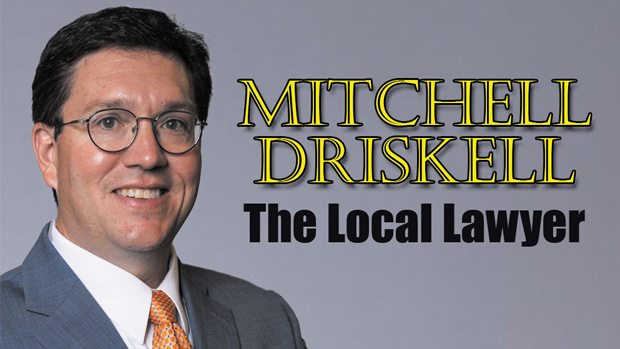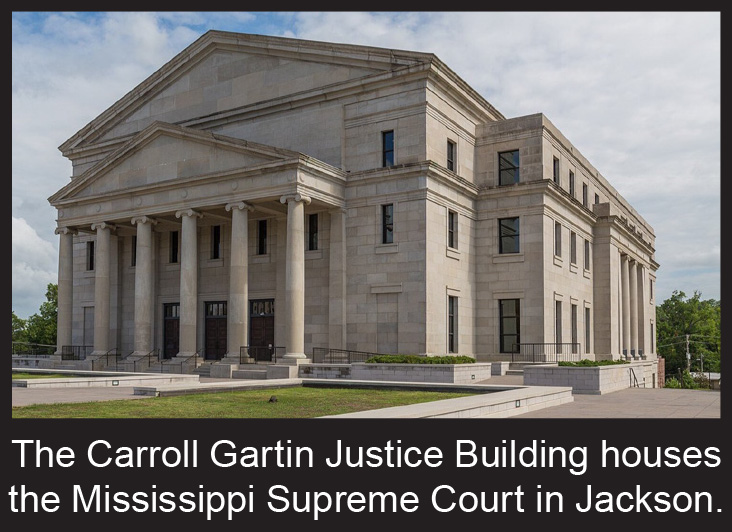
In Mississippi, like most states, the legislature makes the law. The people (citizens) make law only in the sense that the people elect the state representatives and state senators who make the law. There is one exception — the constitutional amendment ballot initiative process under which citizens can propose a new law in the form of a constitutional amendment. That proposed amendment is put on the election ballot, and, if enough voters approve the proposed constitutional amendment, that amendment becomes law. The ballot initiative process is the only way for the people to directly make a law — a way to go above the legislature’s head and make a law whether the legislature likes that law or not. The new law that allowed medical marijuana was one of these types of citizen-proposed and adopted laws, a law directly proposed and approved by the people without the legislature voting on it. Despite overwhelming approval, the Mississippi medical marijuana “citizens’ law” was struck down last week by six members of the Mississippi Supreme Court.
The legal challenge concerned the process of getting a citizen-proposed law on the election ballot. The law that governs ballot initiatives (proposed laws) was written back when Mississippi had enough population to have five seats in the United States House of Representatives. At that time, Mississippi statutes divided the state up into five districts for the election of five representatives, and, remember this for later — those statutes dividing the state into five districts are still on the books. To get a proposed ballot initiative on the ballot, the application must include enough signatures from Mississippi citizens showing support of the proposed law. To make sure a proposed ballot initiative (a citizen-proposed law) is supported state-wide, instead of just a sufficient number of people from one or two parts of the state, the ballot initiative laws require a certain number of signatures from across the state. Since the state was conveniently divided into five districts for electing United States Representatives at the time all these laws were made, the ballot-initiative-process-law uses those districts and requires a certain number of signatures from each of the five representative districts to show state-wide support for a proposed new law. The supporters of medical marijuana followed the required process, got the proposed law on the November 2020 ballot and the medical marijuana law was approved by a large majority of voters.
The City of Madison filed a lawsuit challenging the medical marijuana law and argued that years ago Mississippi lost population, no longer has five seats in the United States House of Representatives and, therefore, no longer has five United States Representative districts. If there are not five representative districts, Madison argued, then a proposed ballot initiative (a citizen-proposed law) cannot get the required number of supporting signatures from people in five representative districts. Madison argued, in other words — the ballot-initiative-process-law says people from five districts, Mississippi now only has four representatives/districts and it is impossible to meet the requirement of signatures from five districts. Madison is not super crafty for noticing this glitch, people have seen this problem in the ballot-initiative process for years. There have been bills introduced to fix this problem, but our legislature has not yet fixed it.
Last week, six of the nine Mississippi Supreme Court Justices sided with Madison. The Court said we do not have five representative districts anymore and it is impossible to get votes from five districts if there are only four representative districts. Justice James Maxwell, from Oxford, wrote the dissenting (disagreeing) opinion joined by two other Justices. Justice Maxwell pointed out that the old statutes setting up the five districts are still on the books, and, therefore, the five districts still exist as a matter of Mississippi law even if they do not control how United States Representatives are currently elected. The dissenters pointed out that the five districts are still defined by law, you can still pull out a map, draw the lines, and count signatures from those five areas of the state, which was the point of the requirement in the first place.
The takeaway is that the technicality defeated the people’s will. The glitch was left sitting in the process like a time bomb, ready to be detonated when needed. Seventy-four percent of Mississippi voters approved medical marijuana. Whether you were one of them or not, you should care that a citizen-adopted law, and the whole ballot initiative process, has been overturned. Until the legislature fixes the glitch, or more Justices agree with Justice Maxwell, Mississippi citizens have no way to put laws on the ballot.
Mitchell Driskell has been an Oxford lawyer for twenty-one years. He practices criminal law, family law, business transactions and civil litigation. Email him mdriskell@danielcoker.com. Follow him on Instagram @mdriskell, Twitter @MODIIItweets, TikTok @DriskellLaw and on Facebook.


